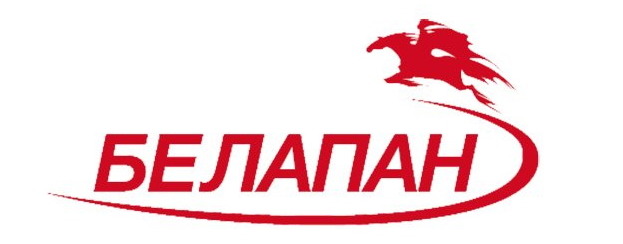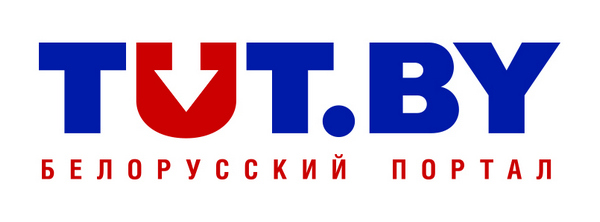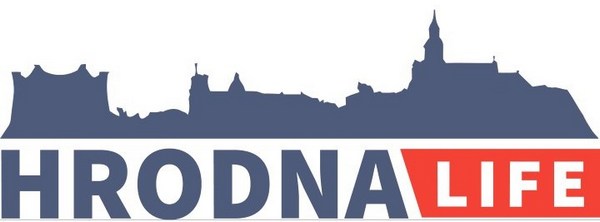How Belarusian officials withhold information about COVID-19 from the public. Editors of Belarusian media tell their stories
State propaganda accuses independent colleagues of misinformation and whipping up public hysteria, authorities threaten them with warnings and fines. At the same time, officials meet the journalists with a wall of silence.
It is extremely difficult to get either their comments, or official responses to media enquiries.
Belarusian Association of Journalists asked colleagues from different media to tell their stories on how officials denied them information.

Iryna Leushyna, BelaPAN chief editor: it is practically impossible to get a comment from the Health Ministry
The Ministry’s press service posts on Viber and Telegram for journalists who cover COVID-19. The posts are regularly updated. However, the information is incomplete. For example, there is no data on patients with severe disease on mechanical ventilation, or on local outbreaks of COVID-19.
There is no information on the methodology of how COVID-19 deaths are determined. Therefore, it remains unclear why Belarus has such a low COVID-19 death toll, while the disease cases grow fast. The Ministry of Health says that patients who died had had chronic diseases, but in some cases, their relatives disagree with the Ministry.
The Ministry’s Spokesperson is very reluctant to communicate with reporters, making it almost impossible to get her comment. Only in isolated cases, she helped to interpret the confusing figures in situation reports.
The Ministry of Health has not held press conferences for journalists since April 17.
The behavior of public health officials during press conferences is a separate matter. They turn on caps lock voice, and lecture journalists on how to work and what to write about instead of giving clear answers to questions.
About 10 years ago, a new policy was imposed in the health care system. It required all its officials and experts not to talk to reporters, unless it was coordinated with the Ministry’s press service. Unequal access to information for the state and independent media has become especially visible during COVID-19 coverage.
For example, it is telling that the official covid-19 page stopcovid.belta.by with the Health Ministry’s logo is hosted by the state news agency BelTA.
The state-run media regularly publish interviews, comments, and explanations by medical and public health officials, while independent media are denied such an opportunity. Public health experts are afraid to give comments in the open, or to provide their names. Often they are reluctant to have their comments audio recorded. In this situation, journalists constantly feel stressed and vulnerable: they risk being prosecuted for alleged defamation or fake news.
Never-ending reproaches of scare mongering and speculating on the disease by the state leader and other officials also put psychological pressure on independent media and reporters.

Valiantsin Zhdanko, RFE/RL: We received no responses, even to our written enquiries.
By the epidemic, we had a working relationship with the press service of the Ministry of Health. Yes, doctors had to get permission from the Ministry to give any interview or comment.
In fact, there is something odd about a chief physician or a professor of medicine having to ask permission from health officials to talk about their work. We had to put up with it.
However, in the new circumstances of COVID-19, this system presents a powerful barrier to the freedom of speech. You call any hospital, public health office, or institution, and get a ‘no’ everywhere: they refuse to talk and refer you to the Ministry of Health.
Its press service was great in the first weeks of the epidemic. Spokesperson Yulia Baradun communicated with reporters on her mobile phone and in her social media accounts.
That didn’t last long. Now, every RFE/RL reporter has dozens of unanswered calls in their phone. Well, sometimes our journalists succeed in reaching her from someone else’s number.
To be fair, I managed to get through to Ms. Baradun on 29 April, and she promised to respond to a formal enquiry.
Well, RFE/RL has sent dozens of such enquiries since early March — both in social media and to the Ministry’s email. We have received zero answers.
In health care crisis, these issues are urgent. With disturbing reports of overcrowded hospitals that started to come from Vitebsk in late March, we needed to verify information immediately. What is the use of figures on the infected in late March if we receive them in 30 days?
The Ministry of Health carried out weekly press conferences, but RFE/RL journalists are not informed about them.
We have repeatedly asked their permission to interview the doctors who work with COVID-19 and public health experts, or to report from a hospital. We managed to get the Ministry’s permission once, and made a great interview with Fiodar Karpenka, director of the Center for Transfusion and Medical Biotechnologies. It was published on 30 March.
To our deep regret, the ghosting that we have been encountering recently on the part of the Health Ministry’s press service makes it very difficult to deliver information to public.

Mikalai Kazlovich, chief editor of Onliner.by: We keep stumbling on cold backs of officials: «That’s not in the rules».
Our newsroom discusses all the nonsense around access to official information that sometimes occurs in the Belarusian media space. We just can’t connect the dots. In the era of COVID, we are bombarded with tons of rumors in social media and Telegram channels. Our email is barraged with letters.
However, while trying to check all this stuff and stop the circulation of fake news, our reporters keep stumbling on cold backs of officials: «It’s not in the rules». Keeping silence gives a green light to rumors! Hell no. No place for logic here.
During the first major outbreak (Vitebsk), we tried to verify the information on the road blocks that had allegedly been enforced at the city. We heard from people that students were not allowed to return to college, that buses are turned back, and much more. A classic ‘panic attack’ caused by the lack of information. But it was impossible to get their comments quickly. There was a similar story a bit later, when paramedics disclosed the outbreak at one of Minsk emergency stations. All government agencies, including Minsk city executive committee, stopped their communication with reporters and decided to remain silent.
No matter where our reporters go, any city or town, they face the problem with access to information. Beshankovichy, Stobtsy, Slonim… Local cities are the main areas of silence. I can understand health workers. Their job is to treat people. We appreciate that. I can not understand health care officials responsible for communication. Local ideologists call quitsies, in their usual manner: the virus is not their business. Increasingly, they jump on journalists accusing them of fueling panic.
However, this entire pandemic story is bringing something new on the agenda. The rapid growth of Health Ministry’s Telegram-channel certainly gives a boost to the development of such channels of other government agencies . This will facilitate access to information. The Press Center started livestreaming. That’s a good thing. It’s no world-shaker: these are fundamentals of a healthy and open information society that is able to defeat the pandemic (just as WHO says) much faster than a closed and intimidated one.

Yahor Martsinovich, chief editor of Nasha Niva: Their system of communication with media is a disaster
The Health Ministry’s system of communication with the media is a disaster. Local officials, or head physicians at hospitals do not provide any information: ‘Talk to the press service of the Ministry, please.’
The Ministry’s spokesperson, Yulia Baradun, would simply not return calls. Or, she would read messages and give no answer. She might answer one in five messages.
In fact, she had the same manner of communication with the media when she served as spokesperson of the Ministry of Education. I see that Baradun is not good for this job. It is bizzare that journalists have less problems reaching Minister Karanik on his cell phone, risking to distract him at work.
The death of a woman in Vitebsk, whose family was told about COVID as the death cause, is a typical example. Baradun ignored NN reporters for hald a day. When the article came out without her commentary, she immediately answered in direct messages: «She had many diagnoses, but not COVID.»
When we added her words to the article, she got angry: «I told you this privately.»

Ulyana Babayed, editor of Society section at TUT.BY: We have accumulated many questions, and we want experts to answer them.
At the beginning of the pandemic the Belarusian Health Ministry was more open. For journalists, it was a pleasure to work with them. Then the situation changed. But even in this new situation, the Ministry of Health is more open for the media than other agencies.
Well, the Belarusian journalists are not spoiled by access to information. We have very few agencies willing to promptly provide information, many colleagues are used to fighting their way to them. During the pandemic, the Ministry of Health remains one of few agencies that gives at least some information to journalists.
However, for some reason, their most recent briefings were held in ‘no questions’ format. This is really bad: we have accumulated many questions, and we want experts to answer them. Readers need expertise and analysis. This is what we really need to stop the panic and tell people something more than situation reports and statistics.
But even with this stunted communication, the Ministry of Health behaves better than many other state agencies. Although WHO recommendations say that during pandemic, other agencies should demonstrate greater openness, too.
It would be great if other state agencies gave us and our readers some clear and simple tips, and told people what to expect. For example, we need to know how they will grade school students, how social benefits are to be paid, etc.
Still, we can’t get everything what we need from the Health Ministry, either. We receive a lot of information from readers, and we need to verify it. But the Ministry is not always eager to provide us with information. Then we try to verify it in other agencies.

Alaksei Shota, editor of Hrodna.life (Hrodna): «We had to fake cookie delivery to find out about the lockdown.»
The main problem is that no one wants to take responsibility and provide information. Agencies just refer you to somewhere else. That’s happening everywhere: in public health services or companies with covid suspicions, for instance, at the local markets.
We had to phone every manager at the regional state company running local markets to verify information about one of the markets in Hrodna. Finally, we had to pretend to be a cookie delivery to hear about the lockdown of one of its parts. This is not what journalists do, but it was the only option.
Public health services are the same way: there are special phone numbers, hotlines, etc., but they are not ready to say anything beyond general figures provided by the Health Ministry.
To find out information from particular hospitals, we have to search the social media for their staff, doctors, who are not too keen to talk to us. This is the only way how we can verify information from anonymous Telegram-channels. Some things turn out to be true, some not. Almost everything is unofficial information.

Piotr Kuzniatsou, Silnye Novosti (Homel):
In Homel, this is our usual mode of operation: the authorities do everything possible not to share information with Silnye Novosti. This is true not only about the current pandemic, but about everything. We are often encountered situations when an official seems to be okay about talking to us but asks us to call back in some time. Calling back, we usually hear ‘no comments’ from them. We understand that they have just discussed this with the local ideology department. We also know about the tacit policy not to communicate with our outlet. Sometimes it goes beyond common sense.
In the beginning of the epidemic, we tried to go through official channels to find out about the situation in Homel region: we called our Regional Health Authority and sanitary-epidemiological agency, but no one would talk to us. Sullen silence, with reference to the official press releases of the Health Ministry.
Therefore, we have adopted a different strategy of working with the sources who have access to information and are ready to share it anonymously.
We publish news about the situation in the region, if we can verify it by at least two anonymous sources. I am proud hat now we are the only local media in the country that provides complete and reliable coverage on the spread of COVID in our area, despite the resistance and silence of the authorities.
However, figures are ot enough. Often we have to work with personal stories. Obviously, the lack of transparency plays a huge role in such cases. The authorities do not only hide information, but are pretty good at manipulation.
Remember the first non-imported case of infection in Zhytkavichy? Having learned about the case from our sources, we were the first ones to write about it. Health minister Karanik confirmed that publicly, but refused to comment on it for us or other media. However, later the diagnosis was ‘canceled.’ This is pure manipulation when they tried to hide the problem but we still found out. A real man of his word: he gives it, and he takes it back.
Another example. We know that one of Homel schools principal is in hospital with coronavirus. Since this is about someone in particular, we can’t just publish this information without verifying it. Otherwise the authorities could do the same as with the woman from Zhytkavichy: just say it was not true — and how could we check if they were not lying? We call the school, and they tell us we need to call the hospital to find out about the diagnosis.
The hospital says it’s a medical secret. We’ve come full circle. But this is socially significant information, as the school continues to teach students, and uniformed people can’t make infomed decision about their behavior.
We have dozens of cases like these two. The authorities are at pains to keep concrete cases in secret or manipulate reality and try to squeeze it into their vision. Sometimes they do it in hindsight, when the fact has already been published.
 @bajmedia
@bajmedia
